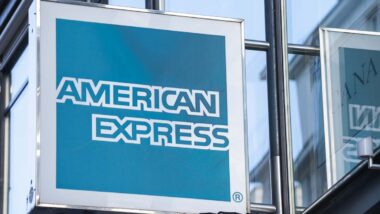Top Class Actions’s website and social media posts use affiliate links. If you make a purchase using such links, we may receive a commission, but it will not result in any additional charges to you. Please review our Affiliate Link Disclosure for more information.

Returned item fees, also known as non-sufficient fund (NSF) fees, are fees charged to a consumer in an event that a transaction exceeds the balance in their account.
NSF fees are charged to a consumer by a bank when certain transactions attempt to be processed but exceed the balance in a checking account.
The two terms are often used interchangeably. However, NSF fees and returned item fees are not the same as overdraft fees. Overdraft fees allow transactions to be processed when there is an insufficient balance, and compensate the bank for the process of moving money from an account or line or credit to compensate for a transaction.
Although NSF fees are not illegal, a recent class action lawsuit against ESL Federal Credit Union argues that the financial institution violated consumer agreements by charging multiple NSF fees on a single transaction.
Plaintiff Susan Roy allegedly experienced this issue in November 2018. After attempting to transfer $34.93 to PayPal, ESL allegedly rejected her transaction and charged her a $37 fee. The issue was allegedly processed again a week later, then once more a month after the original transaction, resulting in two additional fees.
“In sum, ESL charged Ms. Roy $111 in RI [returned item] Fees to attempt to process a single $34.93 payment,” the returned item fee class action lawsuit claims. “Ms. Roy understood the payment to PayPal be a single transaction, capable at most of receiving a single RI Fee.”
According to Roy’s class action, ESL’s binding account contract states that returned item fees will be $10. However, the credit union allegedly charged between $29 and $37 for these fees, which Roy argues violates the fee schedule included in account contracts.
Roy argues that ESL takes advantage of their members by processing returned item fees as “overdraft” fees, allowing them to charge consumers up to $37 per transaction. However, this is allegedly deceptive because “such provisions cannot apply to returned or unpaid items, since—by definition—they are not debited from account and can therefore never result in an ‘overdraft’.”
Additionally, Roy claims that ESL does not warn their customers that they may process transactions multiple times as occurred with her PayPal transaction. Account contracts allegedly make no mention of this policy, despite ESL siphoning more money from consumers in addition to charging excessive fees.
Roy seeks to represent two Classes. The first Class is proposed to include all ESL checking account holders who were charged returned item fees over $10. The second Class is proposed to include all ESL checking account holders who were charged multiple returned item fees on the same item.
The ESL Federal Credit Union Returned Item Fee Class Action Lawsuit is Case No. 6:19-cv-06122, in the U.S. District Court for the Western District of New York.
Join a Free Returned Item Fee Class Action Lawsuit Investigation
If you were charged multiple returned item fees (also known as NSF fees or insufficient funds fees) on the same transaction by your bank, you may be entitled to compensation.
ATTORNEY ADVERTISING
Top Class Actions is a Proud Member of the American Bar Association
LEGAL INFORMATION IS NOT LEGAL ADVICE
Top Class Actions Legal Statement
©2008 – 2024 Top Class Actions® LLC
Various Trademarks held by their respective owners
This website is not intended for viewing or usage by European Union citizens.















16 thoughts onCredit Union Accused of Unfair Returned Item Fee Policies
Add me
Add me
Please add me.
Add me for Navy Federal Credit Union
Is this still an ongoing lawsuit? How do I get added?